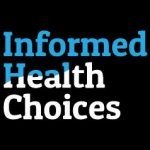
Informed Health Choices Podcasts
Each episode includes a short story with an example of a treatment claim and a simple explanation of a Key Concept used to assess that claim
| 1 Comment | Evaluated
Ebm@school – a curriculum of critical health literacy for secondary school students
A curriculum based on the concept of evidence-based medicine, which consists of six modules.
| 0 Comments | Evaluated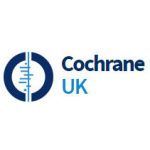
Evidence for everyday health choices
A 17-min slide cast by Lynda Ware, on the history of EBM, what Cochrane is, and how to understand the real evidence behind the headlines.
| 0 Comments
Sunn Skepsis
Denne portalen er ment å gi deg som pasient råd om kvalitetskriterier for helseinformasjon og tilgang til forskningsbasert informasjon.
| 0 Comments
Dancing statistics: correlation
A 4-minute film demonstrating the statistical concept of correlation through dance.
| 0 Comments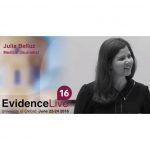
Julia Belluz – Lessons from the trenches of evidence-based health journalism at Vox.com
20-minute talk by Julia Belluz on the need to bring the cultures of health journalism and EBM together.
| 0 Comments

Calling Bullshit Syllabus
Carl Bergstrom's and Jevin West's nice syllabus for 'Calling Bullshit'.
| 0 Comments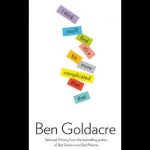
All bow before the mighty power of the nocebo effect
Ben Goldacre discusses nocebo effects, through which unpleasant symptoms are induced by negative expectations, despite no physical cause.
| 0 Comments
Detectives in the classroom
Five modules of materials for promoting epidemiology among high school students.
| 0 Comments
Not all scientific studies are created equally
David Schwartz dissects two types of studies that scientists use, illuminating why you should always approach claims with a critical eye.
| 1 Comment
Making the most of the evidence in education
A pamphlet to guide people using research evidence when deliberating about educational policies.
| 0 Comments
Randomized Control Trials
1/2, 40-min lecture on randomized trials by Dr R Ramakrishnan (Lecture 25) for the Central Coordinated Bioethics Programme in India.
| 0 Comments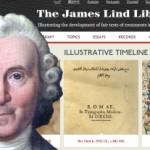
Why treatment comparisons are essential
Formal comparisons are required to assess treatment effects and to take account of the natural course of health problems.
| 0 Comments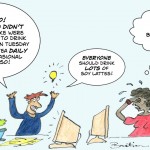
Soy Lattes
Just because two things are associated, doesn't mean one thing caused the other.
| 0 Comments
Cause and Effect
Just because two things are associated, doesn't mean one thing caused the other.
| 0 Comments
Observational Studies – does the language fit the evidence?
A webpage explaining observational studies and their advantage and disadvantages.
| 0 Comments
Smart Health Choices: making sense of health advice
The Smart Health Choices e-book explains how to make informed health decisions.
| 0 Comments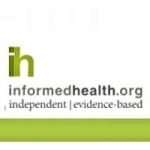
Can measurements show if a treatment works?
An article discussing errors to avoid when testing treatments.
| 0 Comments
Association is not the same as causation. Let’s say that again: association is not the same as causation!
This article explains how to tell when correlation or association has been confused with causation.
| 0 Comments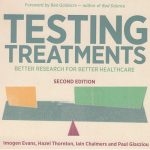
New – but is it better?
Key points Testing new is necessary because new treatments are as likely to be worse as they are to be […]
| 0 Comments
Mistaking the cure
. . .‘it is alleged to be found true by proof, that by the taking of Tobacco, divers and very […]
| 0 Comments
The beneficial effects of optimism and wishful thinking
The psychological reasons for people attributing any improvement in their condition to the treatment they received are now better understood. […]
| 2 Comments
Why are fair tests of treatments needed?
In this sub-section Nature, the healer (this page) The beneficial effects of optimism and wishful thinking The need to go […]
| 2 CommentsNo Resources Found
Try clearing your filters or selecting different ones.
Browse by Key Concept
Back to Learning Resources homeJargon buster
About GET-IT
GET-IT provides plain language definitions of health research terms
